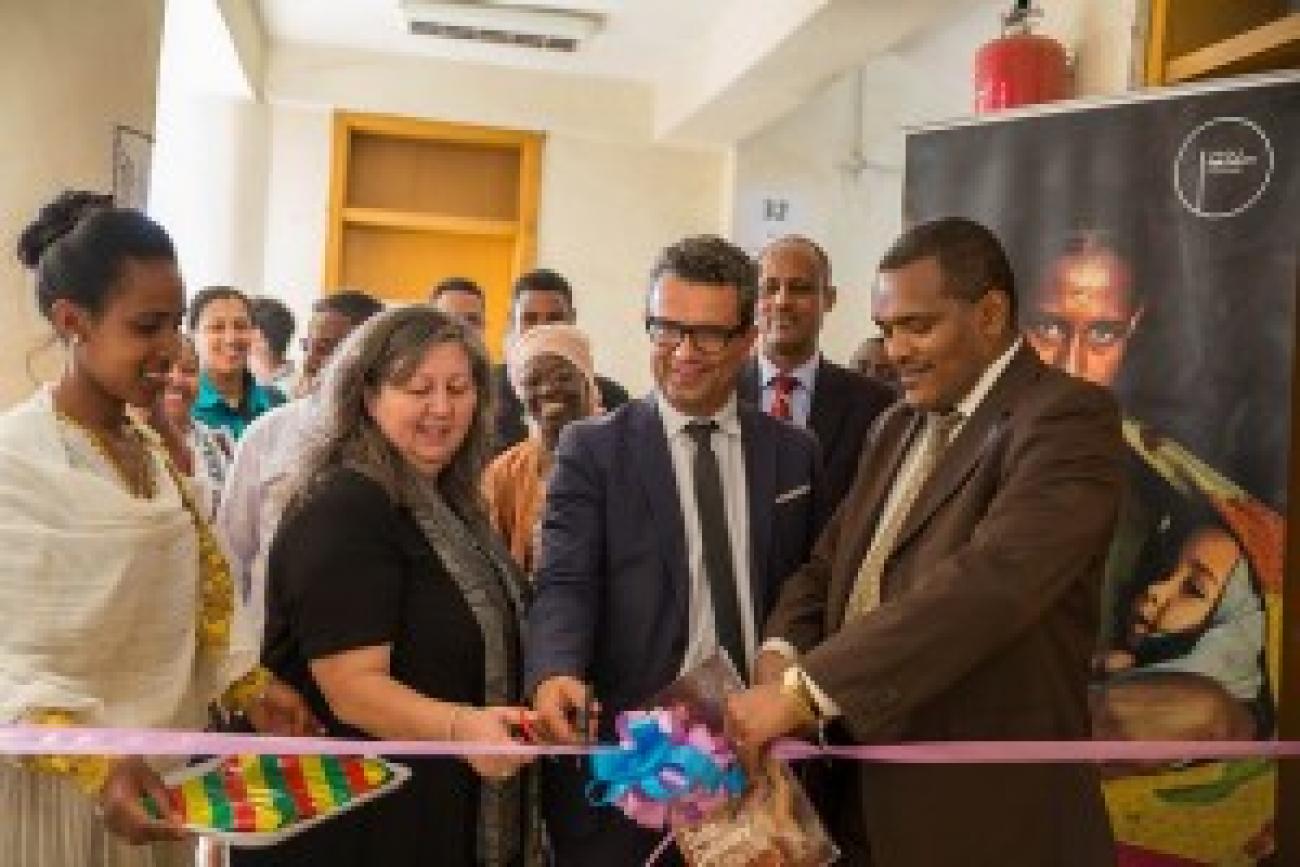Today, a handover ceremony was held at Kotebe Primary Hospital to deliver essential basic emergency obstetric and new-born care supplies and a full set of anaesthesia and operation theatre equipment as part of the “Enhancing Skills for Delivery in Ethiopia” (ESDE) project.
The handover ceremony was attended by H.E Dr Kebede Worku, State Minister of Health, Mr. Thomas Huyghebaert, Head of Governance, Economic and Social Section of the European Union Delegation to Ethiopia, Ms. Patrizia DiGiovanni, Officer in Charge, UNICEF Ethiopia and representatives from Addis Ababa City Administration Health Bureau, Yeka City Administration Health Bureau, Kotebe Hospital administration and members of the media.
In April 2014, the ESDE project agreement was signed between the Federal Ministry of Health, EU and UNICEF for an amount of 1.1 billion birr (€40.2 million) which represented one of the largest grants to maternal health ever provided to Ethiopia. This funding from the EU is used to scale-up maternal health and new-born care for a three year period (2014-2016) in Ethiopia. Of this grant, €20 million is allocated to the MDG Pool Fund of the Federal Ministry of Health and the remaining half to UNICEF to procure the essential maternal and new-born supplies and equipment.
Through this project nationally, 500 health centres and 55 hospitals are supported with essential basic emergency obstetric and new-born care supplies and equipment which enables them to handle most maternal and new-born complication. Moreover, 55 primary hospitals have received full set of anaesthesia and operation theatre equipment, which helps to provide emergency caesarean and other essential lifesaving operative procedures.
To complement the supply component, the project supports training of 5000 Health Extension Workers to provide community based new-born sepsis management, 1000 midwives and nurses on competency based basic emergency obstetric and new-born care, mentoring and supportive supervision and 50 hospital staff on advanced new-born care.
At the handover ceremony, Dr Kebede Worku, State Minister of Health said, “This key contribution comes at a crucial time when Ethiopia has made considerable progress in promoting primary health care service provision through the Health Extension Programme and launched the Health Sector Transformation Plan (HSTP) and is working towards ending preventable child and maternal mortality through committing to the goals of the Sustainable Development Goals (SDGs).”
Mr. Thomas Huyghbaert, Head of Governance, Economic and Social Section of the European Union Delegation to Ethiopia, on his part said, “The EU is very confident that the soft and hardware support of ESDE will help Ethiopian health systems in providing quality maternal and new-born health care and will further bring down child and maternal mortality rates.”
In Ethiopia, up to 15 per cent of mothers and new-borns suffer serious complications that require referral to facilities providing comprehensive emergency obstetric and neonatal care (CEmONC) services including caesarean sections, blood transfusions and emergency laparotomy. However, the availability of CEmONC has been limited with only over a hundred hospitals having the capacity to provide the service.
“UNICEF is privileged to collaborate with the Federal Ministry of Health and the European Union to procure the most essential maternal and new-born care supplies and improve the quality and accessibility of services for skilled birth attendance. We hope that this collaboration helps to significantly reduce maternal and neonatal deaths in Ethiopia and save precious lives,” said Ms Patrizia DiGiovanni, Officer in Charge, UNICEF Ethiopia.
Nationally, the ESDE project is benefitting 625,000 mothers and new-borns annually from improved access to maternal and new-born health services – a quarter of annual national deliveries. In the three year implementation period, the project is supporting close to 2 million mothers and new-borns.


